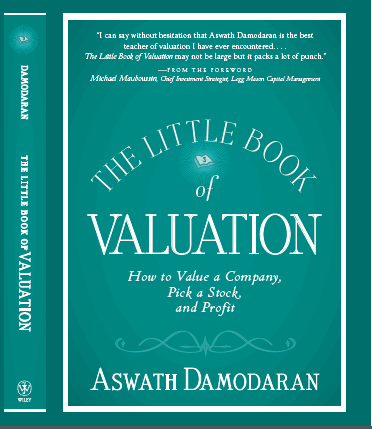 The
Little Book of Valuation
The
Little Book of Valuation
A Preface
In
my other books on Valuation (Investment Valuation, Damodaran on Valuation and
the Dark Side of Valuation), I have written about how best to value companies
and securities. Those books were directed primarily at analysts and
practitioners, whose interests lie primarily in the practice of valuation. Consequently,
they are filled with details that are useful (I think) to the valuation
practitioner but not necessarily for investors. The average investor has a less
intense need for valuation details and is more interested in learning valuation
basics that he or she can apply quickly to differentiate between investments.
In
the Little Book of Valuation, I have tried to distil the fundamentals of
valuation (without glossing over or ignoring key components) and develop models
that investors can understand easily and use quickly (with relatively few
inputs). In the process, I hope to give investors the tools to not only value a
company quickly but to also to critically review valuations done by others.
Rather
than structure the discussion around different models, I have looked at valuation
approaches have to be adapted as companies move through the life cycle and how
they might vary across sectors. With each category of companies, I extract from
the valuation basics what I term “value drivers” which may be helpful in
picking the companies with the most profit potential.